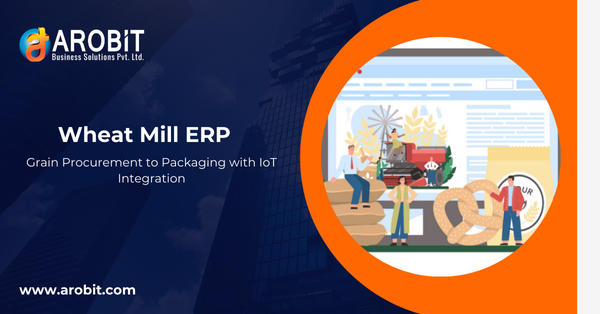An ERP finance module contains a software component of an ERP system aimed at the management and automation of a few financial activities. The finance ERP module collects almost all financial transactions at the nerve center of financial activities for that company and represents the overall health of a company financially.
Cash flow and budgeting are fundamental to any business, since cash flow is the lifeline of a company paid with funds to satisfy all short-term obligations, while budgeting provides the company with a roadmap for future performance. Without this information, a business could face insolvency and make some poor decisions.
Its recent report said that by 2025, companies using ERP finance modules have reaped the following benefits:
- 25% higher accuracy in cash flow forecasting;
- 30% less time spent on manual financial activities;
- 15% enhanced overall financial efficiency.
The blog is an overview of the mechanisms behind the way ERP finance modules enhance cash flow and budgeting and how to exploit such mechanisms to increase the odds of financial success.
Understanding ERP Finance Modules
ERP finance modules do much more than just accounting. They include the completion of a multitude of other functions, streamlining, and automating financial processes. From designing specific solutions for the companies on offer, one may expect the availability of a customizable module from an ERP software development company based in India or any other capable ERP software development company existing worldwide that suits specific operational requirements.
Core Functions:
- General Ledger: The general ledger serves as the foundation of any accounting system. All financial transactions are recorded by it, thus providing a complete financial history.
- Accounts Payable and Receivable: This occurs on both sides of the business; while accounts payable include the company's obligations to suppliers, accounts receivable help track the money owed by customers, ensuring timely payments and collections occur regularly. Often referred to as ERP AP, the accounts payable module streamlines invoice processing and payment schedules.
- Asset Management: This function helps track and manage the fixed assets of a company, be they machinery or real estate; this ensures accurate depreciation and maintenance schedules.
- Financial Reporting: ERP finance modules generate many financial reports, including balance sheets, income statements, and cash flow statements, providing insights into financial performance.
- Budgeting and Forecasting: These tools help to create realistic budgets and forecasting for future financial performance, drawing upon historical data and current trends. Such a module, if integrated well with a purchase module within the ERP, also contributes significantly to accurate budgeting since it tracks the costs of the purchase.
- Integration with Other ERP Modules: The beauty of an ERP finance module is its integration with other ERP modules like supply chain, sales, and human resources. For instance, sales data is fed directly into the finance module, giving a real-time take on revenue. Similarly, purchase information flows from the supply chain module and updates accounts payable, significantly improving the tracking of expenses. This integration becomes important for correct financial insights and informed decision-making. In selecting any ERP companies in India, look for the ones that allow complete integration of all modules. Engaging professional ERP software developers in India may make sure that your ERP system is tailor-made as per your business requirements.
How ERP Finance Modules Improve Cash Flow
A stable cash flow enables the company to remain financially sound and secure. Finance modules of ERP solutions come with a variety of features that directly enhance a company's capability to maintain its cash flow.
- Real-time visibility: ERP systems give real-time views on cash inflows and cash outflows. This tells the business exactly where, how, and from whom the money is coming or going. Such visibility is critical to making informed financial decisions promptly. For instance, real-time tracking of payment notices sent to customers helps detect late payments and cash flow issues.
- Better cash management: Owing to much clearer visibility of cash flow and all the underlying details, ERP systems help manage the corporate liquidity condition, allowing the organization to take action on any cash problems. It automates invoicing and payment reminders and helps optimize the cash flow condition by identifying opportunities to mitigate costs and boost revenues.
- Improved forecasting: These software solutions assist in cash flow forecasting using information from historical data and current activities, allowing a more precise forecast of future cash flows. Integrated with feedback from customer and vendor management, these modules give a creditable prediction of future cash flows, allowing the organization to allocate resources to prepare for potential shortfalls.
Enhancing Budgeting with ERP Finance Modules
Budgeting should be considered not just as managing the affairs once a year but as a continuous process of guidance for making financial decisions. The ERP finance modules lend themselves to transforming budgeting from a cumbersome process into a strategic advantage.
- Streamlined Budgeting Processes: ERP systems automate and streamline the budgeting process, lessening the amount of manual effort and errors associated with traditional methods. Such features as automated data consolidation and prebuilt budget templates streamline the preparation of budgets.
- Better Financial Planning: Analyzing financial transactions through ERP modules provides info in real-time for financial planning as well. In turn, this can ensure liquidity and support analysis required for the analysis of KPIs. This allows an enterprise to align its financial plans to its strategic goals and make relevant decisions concerning separate investments and resource allocations.
- Budget Monitoring and Control: Tracking and Control of Budgets. ERP systems allow the comparison of budgets with actual performance and alert managers in case any deviation from the pre-established budgets occurs so that timely corrective measures can be taken and ensure the course of the company toward financial objectives.
Benefits of ERP Finance Modules
The implementation of ERP finance modules provides advantages beyond cash flow management and budgeting functions. For instance, they intelligently collaborate with various other modules in an ERP system to create efficiencies and maximize operating efficiencies.
- Greater Efficiency: The ERP automates a certain lot of financial activities, dramatically reducing redundancy in function while increasing data consistency too. As such, finance teams can spend their time on proactive pursuits, fusing with energetic foresight, planning, and strategy development.
- Higher Accuracy: ERP systems then allow financial data input, computations, and reporting to be less prone to human error. They also work toward ensuring there is good financial compliance, upholding life, and reducing the cost of realizing these mistakes.
- Assured Decision-Making: ERP systems offer information on real-time data and overall financial reporting to enable a company to make sounder decisions. This can effectively facilitate strategic planning, forecasting, and managing the level of risk, thus making the financial condition better.
FAQs
Q1. How do finance modules in ERP software improve the accuracy of budgeting?
A1. ERP finance modules eliminate errors by automating data collection, concentrating the financial data from different departments, and establishing solid forecasting tools. This eliminates the risk of human errors and makes sure that budgetary plans are based on the most updated and thorough information.
Q2. What are the features of cash management in ERP?
A2. The features of a cash management module in ERP usually include real-time tracking of bank balances, automated bank reconciliation, cash flow forecasting, accounts receivable management, and accounts payable options. These features facilitate the cash position of the company and provide liquidity to meet the obligations.
Q3. How will real-time information about bank balances improve cash management?
A3. Real-time bank-balance information provides an up-to-the-moment indicator of a company’s cash status and therefore affords much better decision-making concerning investments, payments, and borrowing. It helps identify any shortages or any cash surpluses, so a business will move proactively to ensure good cash flow.
Conclusion
In the complex organizational dynamic of a modern-day business enterprise, ERP finance modules have become important tools for realizing cash-flow improvement and budgeting. With an ability to provide visibility in real-time, automate financial systems, and improve accuracy in budgeting, these tools allow companies to evade uncertainties and make sound management decisions that would ensure their financial vitality. While in the past, implementing ERP for financial management was seen as a luxury, it has quickly transformed into a necessity for companies desiring to stay afloat in a competitive market. Accordingly, making the right choice of ERP and joining hands with trained ERP solution developers in India or a reliable ERP software development company in India can provide a distinct edge in the market.
Need a Refresher? Learn the Basics of ERP Finance
If you're still exploring ERP finance modules, starting with the basics is essential. Understanding how these systems work will give you better insight into their impact on cash flow and budgeting.
Read our ERP finance module overview.
Ready to Choose an ERP Finance Software?
Knowing how an ERP finance module improves cash flow is valuable, but selecting the right solution is crucial. Compare pricing, features, and benefits to make the best decision for your business.
Check out the top ERP finance solutions.








